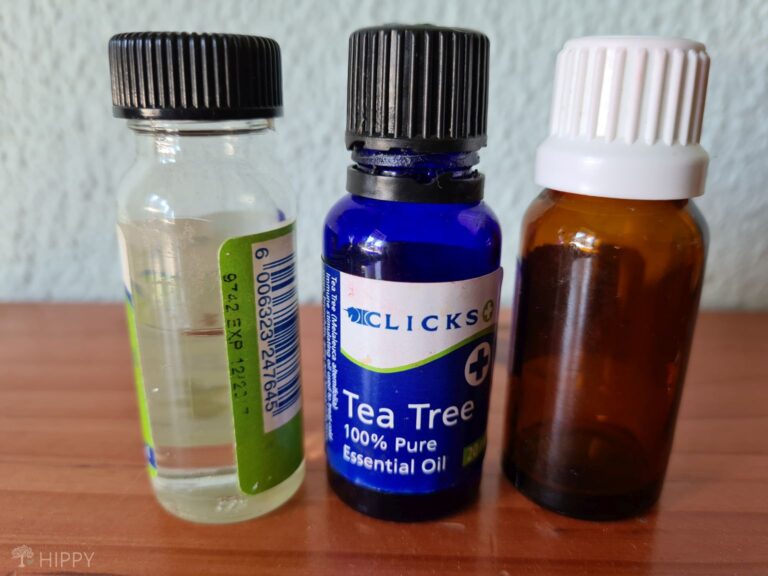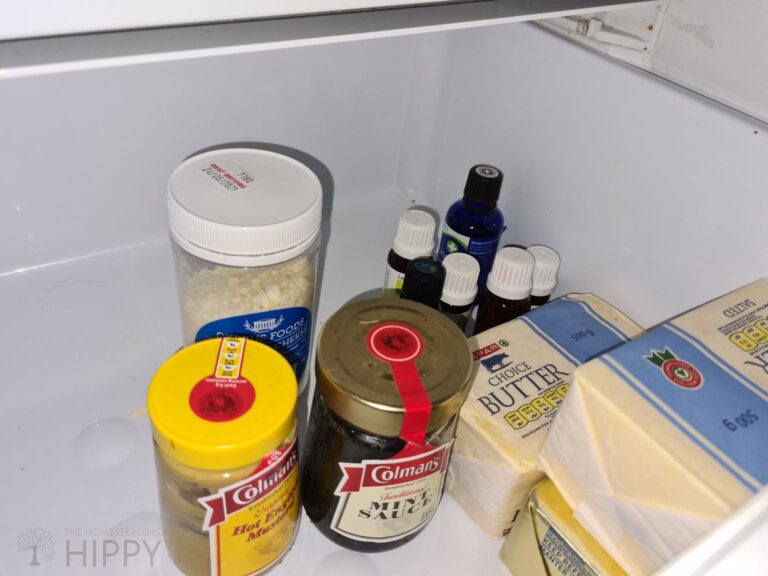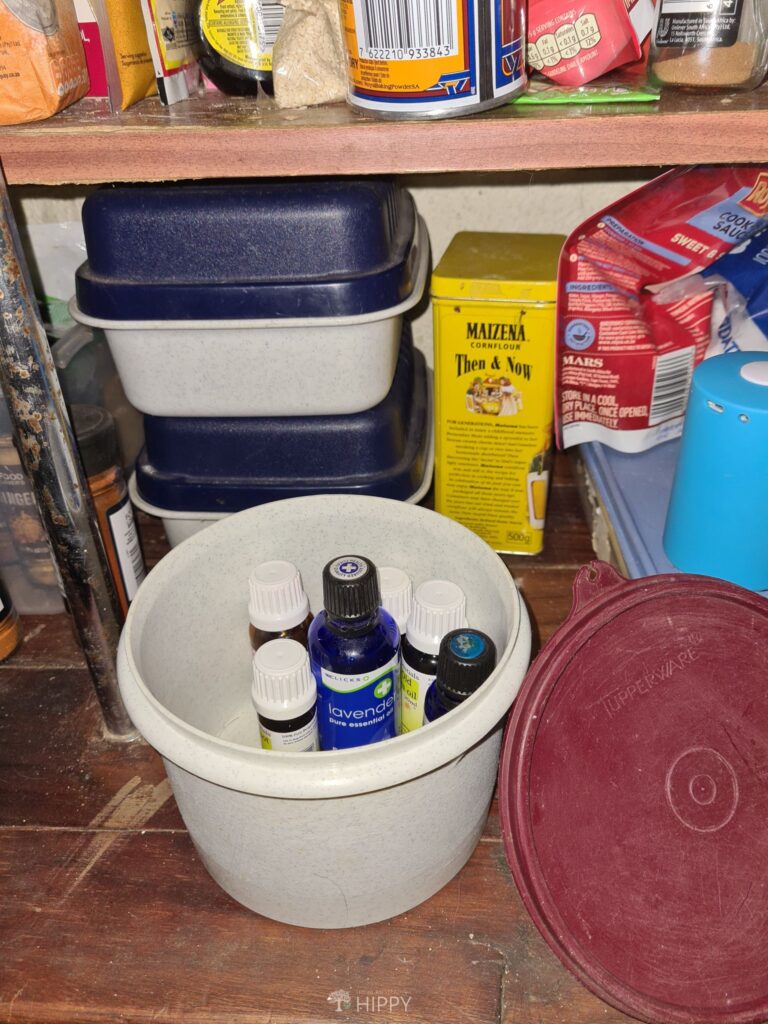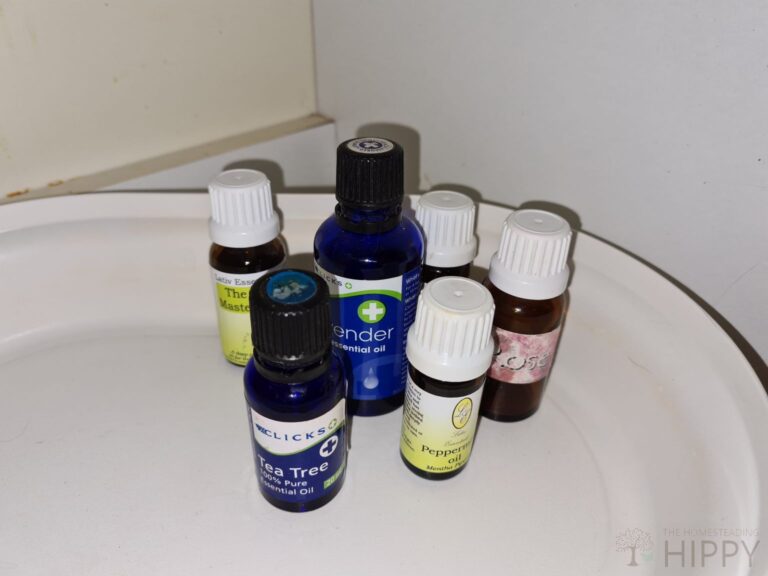Tea tree oil has so many beneficial uses that I do not think a day has gone by in the last 35 years (when I started to learn about the benefits of essential oils and their uses via aromatherapy) that I have NOT had at least one product in my home that contains tea tree oil.

Possibly, 95% of the tea tree oil products in my home are homemade recipes that I have played with to get the desired results. Does essential oil expire? Yes, but it depends on the type…
Pure essential oils do not have an expiration date; oil that is blended with carrier oil does deteriorate over time. Exposure to heat and air will also have a negative impact on the smell and usefulness of any essential oil.
So, what is the shelf life of tea tree oil?
Tea tree oil, if properly stored in a cool, dark place will have a shelf-life of 1 to 2 years (this can be extended to 3 years with really good care and storage).
Oxidization (exposure to air) will cause your oil to lose its fresh scent as it ages. The oil will eventually develop a more pungent odor with time and exposure. The healing properties of the oil will gradually diminish over time.
Personally, I have never had to worry about my oils spoiling because they are used within 6 months of purchase. There are things you can do to prolong the lifespan of your tea tree oil.
How to Tell if Your Oil Has Gone Bad
There are a few telltale signs of expired essential oils. These include:
- The expiration date on the bottle will tell you when it expires. The date is based on the production date, so make sure to check the date before you make your purchase.
- If you use it and it causes skin irritations you may be having a rare skin allergy, but it may also be that the oil has gone bad.
- If the oil’s color has changed or the oil has become cloudy, it is probably either unusable or if it is not too cloudy, it can still be used but the sooner the better at this point.
- If you notice that the oil is either thicker or thinner in consistency than it was when you first opened the bottle.
- The fifth way to tell if your oil is no longer usable is to do the smell test. If it smells different than it smelt when you first opened the bottle, if it smells unpleasant, or smells rancid, it is probably going to walk itself to the rubbish bin.
How to Prolong Shelf Life
The two arch-enemies of any essential oil are heat and air. Minimizing the exposure to these will keep your oil smelling great and prolong the healing properties of the oil.
There is nothing wrong with storing your oil at room temperature if you live in an area that does not experience intense heat. However, storing your tea tree oil in the refrigerator will prolong its shelf life by protecting the oil from oxidizing.

Most reputable producers know that oils need to be protected from direct sunlight. They produce oils and package it in amber or blue bottles.
I know that a bargain price is a bargain, but often a bargain is a bargain because it is of inferior quality, or because it is old stock that no clever buyers would pay for. Period! Not at full price or at sale price.
If you do purchase oil in clear containers, you really need to invest in blue or amber bottles and transfer the oil into these as soon as you get home. If you mix oils yourself, always keep them in blue or amber bottles.
Use a good dripper in the bottle. You need to protect the oil from oxygen for any amount of time. A dripper will ensure the only oil that comes into contact with oxygen is the oil you want to use right at that moment.
If you buy in bulk quantities, transfer the oil into small bottles as soon as you open the big bottle. That way, not all the oil is exposed to oxygen with each use.
Make sure that the lid fits properly and always ensure that the lid is tightly closed.
If the bottle is small and either blue or amber, leave the oil in that bottle if possible. If you want to mix oil, mix it into whatever form and blend you want and store it in a cool dark place.
Plastic is permeable, glass is not. Always buy oil that is sold in glass bottles. Plastic carries toxins and allows oxygen to permeate into the oil. I cannot emphasize this enough, ALWAYS buy in glass! It is good for the environment AND for the lifespan of your oil.
Where to Store Tea Tree Oil
The right storage place will prolong your oils shelf life significantly.
Find a dark place to store your oil. A dark pantry is good. I suggest that no matter where you store it, you place your bottles of essential oil into a colored container to ensure that even if the light is switched on, the oil is not exposed to it.

If you have a closet for spare groceries like boxes of cereal, sugar, rice, or canned goods that does not get opened 10 times a day, store your oils in a colored container at the back of this closet behind your food stockpile.

Storing your oil in a drawer in the refrigerator is a great way to protect it from heat and light. It is the ideal place to protect your oil from oxidation. Store it in a colored container in a drawer in the refrigerator.
If you choose to store your tea tree oil with other essential oils, whether it’s almond oil, sandalwood oil, citrus oils, lavender oil, eucalyptus, or any other type of oil, know that the shelf life of each of these types of oils differs slightly. It’s not a one-size-fits-all situation.
Patchouli has the longest shelf life, with sandalwood and vetiver coming in as close seconds. These are oils that contain high percentages of sesquiterpenes. Myrrh and cedarwood distillations also have higher concentrations of this.
Lemongrass, chamomile, rosemary, thyme, bergamot, and peppermint are somewhere in the middle. Citrus, cypress, frankincense, and pine, along with, unfortunately, tea tree oils contain higher levels of monoterpenes (including limonene) and ketones, so they’re more likely to go bad quickly.
The unique chemical composition of each of these oils really affects the consistency of the oil, changing the oxygen bonds between cells into carbon bonds and causing them to break down over time.
Because of this, it’s important to remember that, while it’s fine to store your oils together, the shelf life of essential oils varies significantly by the type of plant, so you’ll want to inspect each one to make sure it’s still safe to use, rather than making a judgment based on just one bottle.
Where NOT to Store Your Tea Tree Oil
Never ever store your oils:
- ❌ On a windowsill
- ❌ Near a heat source like a stove, microwave, boiler, etc.
- ❌ In a bathroom – people running hot water can raise the temperature of the room and can also make the room very humid which can also affect the longevity of the oil
- ❌ Where kids or pets can gain access to them
My kids were raised on essential oils…
I think we all live and learn, I investigated a very quiet house during a time of day that was normally filled with squealing, laughing, and racing around only to find my three angels mixing their own special blends, when they caught sight of me trying to hold in my belly laugh they all immediately called me into the fold with “smell mommy, smell mine, smell mine!” Like I said, we live and learn.
Conclusion
This potent gift that mother nature has granted us has so many uses on a daily basis. As an essential oil, it is a very pure, concentrated product. While it is undiluted it can last a very long time.
Blended for use in various forms, it will have a lifetime of +/- 6 months. As it ages in this blended form, it will gradually lose its healing powers and will undergo changes in color, consistency, and odor.
Essential oils in their pure state cannot freeze, if you find your oil has frozen, it is because there is some form of carrier oil or water blended in. Do not heat the oil to make it usable, leave it out at room temperature to return it to its liquid state.
If the oil has frozen, and you purchased it as pure oil, you may want to look into a different supplier. The business world is all about the money and there are sadly too many charlatans out there diluting their oils to increase their profits.
Ultimately, your storage conditions will either preserve the oil and products for longer or will lead to it rapidly deteriorating. Store your oils properly in a cool, dark place and minimize exposure to heat.
Always remember to check the best before date and only purchase fresh, pure oil from a reputable supplier.
I am never above learning new tricks, so let me know what you do to keep your essential oils fresh for longer in the comments below.

Di-Anne Devenish Seebregts was raised in an environment where daily life consisted of hiking, environmental conservation, growing fruit and vegetables, and raising poultry for meat and eggs.
She combined her passion for the writing word with her love of the pride that comes with not relying on others. She raised three children (who are now adults) to value the environment, and understand the value of being self-sufficient.
Find out more about Di-Anne on our About Us page.
